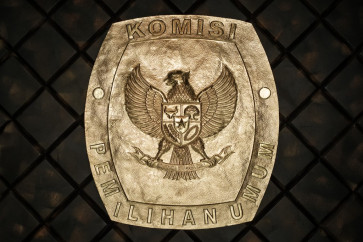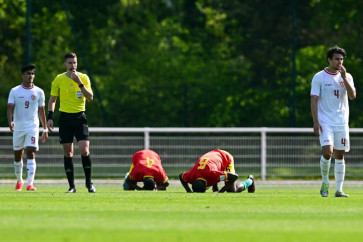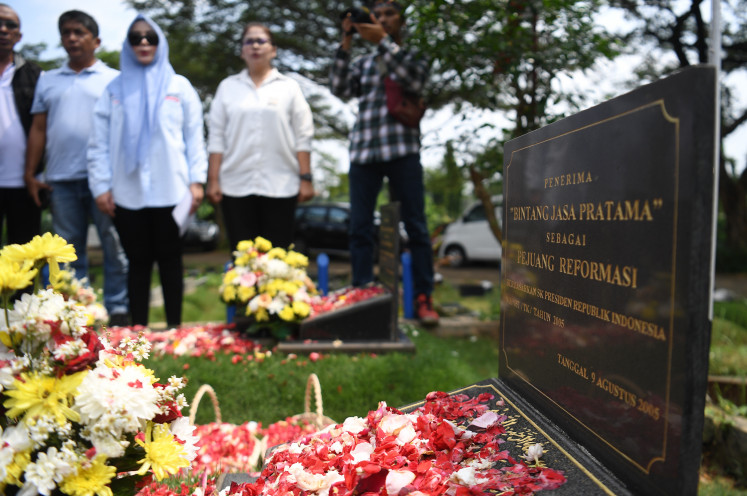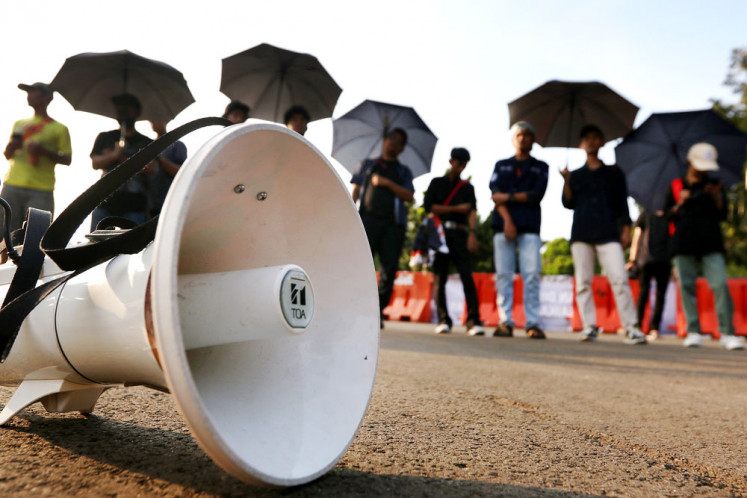New drug for infants injects fresh hopes for malaria-free future
As one of the countries hardest hit by malaria in Southeast Asia, Indonesia stands to benefit from the RTS,S/AS01 malaria vaccine that is currently being trialed for children aged five months and over in three African countries.
Change Size
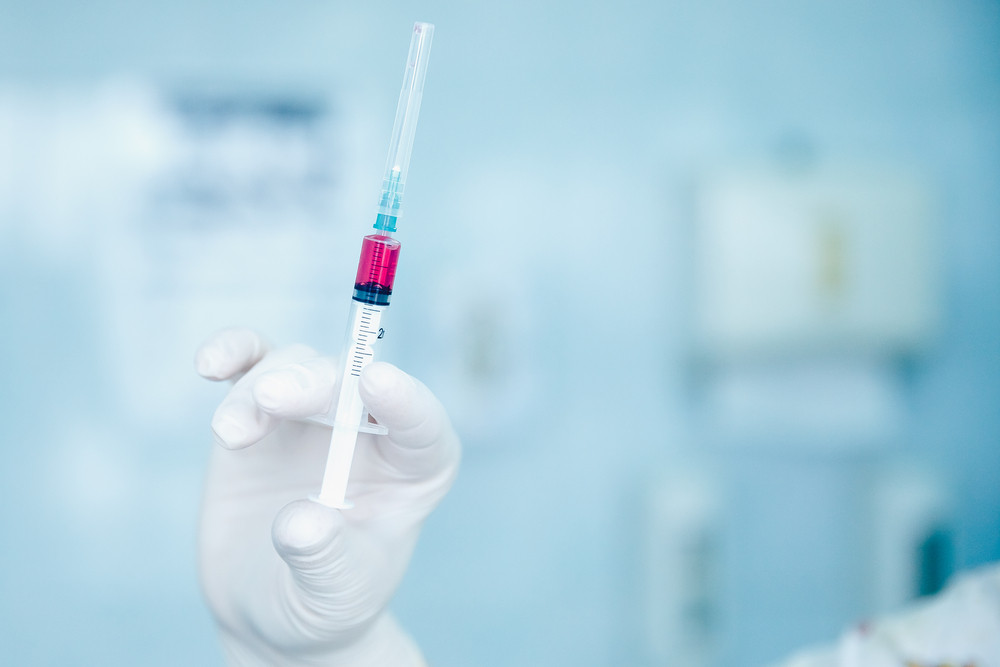
I
ndonesia’s medical community has welcomed the World Health Organization’s (WHO) recommendation for a new malaria vaccine trialed for infants in Africa, which could become a “useful” tool to get rid of the disease by 2030.
As one of the countries hardest hit by malaria in Southeast Asia, based on 2020 WHO data, Indonesia stands to benefit from the RTS,S/AS01 (RTS,S) malaria vaccine for children aged five months and older.
Currently, there are still 24 cities and regencies around the country that are categorized as areas with high malaria transmissibility. More than 530,000 infants, who have no means of protection from the disease, still live in such areas, said Didik Budijanto, the Health Ministry’s director of contagious, vector-borne and zoonotic diseases.
The new drug, he believed, would be helpful in decreasing the number of deaths from malaria in high-risk areas.
“This [population] group does not have any innate protection against malaria. As such, the vaccine can help protect infants in areas of high transmissibility, or those who wish to live in one, from death due to malaria,” the official told The Jakarta Post on Monday.
“The vaccine is an additional useful intervention on top of our existing efforts in eliminating malaria,” he added.
Didik said the government was currently reviewing the WHO’s advice and coordinating with Indonesian scientists and the Food and Drug Monitoring Agency (BPOM) to see whether it would be feasible to run clinical trials with the new vaccine locally and aid in the development of a drug.
Last week, the WHO recommended that the world's most advanced experimental vaccine be given in four doses for children in areas of moderate to high transmissibility of P. falciparum, the deadliest species of the parasite that causes malaria in humans. Globally, the disease kills around 400,000 people every year.
The WHO recommendation follows the results of a pilot program in Ghana, Kenya and Malawi that has seen the vaccine administered to more than 800,000 children since 2019, to great success.
“This is a historic moment. The long-awaited malaria vaccine for children is a breakthrough for science, child health and malaria control,” said WHO Director General Tedros Adhanom Ghebreyesus in a statement last Wednesday. “Using this vaccine on top of existing tools to prevent malaria could save tens of thousands of young lives each year.”
Indonesia’s Didik also says the vaccine will not be the only means to achieve the national elimination target.
“The government is very ambitious in eliminating malaria by 2030, through several interventions. Every two to three years, the government hands out 3 million mosquito nets [to malaria-endemic areas],” he said.
“We also continue ensuring the availability of diagnostic kits and anti-malaria medicine, recruit volunteers to actively test people for malaria and implement controls on the [Anopheles] mosquito population through improvements to the environment,” the official added.
Epidemiologists agree that the government needs to use multiple means to eliminate the disease.
“There’s a WHO benchmark in determining whether malaria is eliminated. In achieving that, the government must do several interventions simultaneously, such as [offering] mosquito bed nets, repellent and anti-malarial drugs,” the Indonesian Epidemiology Association’s (PAEI) head of professional development, Masdalina Pane, told the Post on Monday.
“The vaccine will surely help to control the number of cases. However, just like any other vaccine, it cannot do everything, especially if it’s a new one like this,” she said.
Indonesia and other Asia-Pacific countries have achieved much progress in curbing the spread of malaria in the region, despite the COVID-19 pandemic and other challenges such as rampant counterfeit drugs.
The World Malaria Report 2020, published by the WHO in November last year, reveals that countries listed under the agency’s Southeast Asia regional office managed to curb malaria cases by 40 percent in 2020.
The Indonesian government also recorded that case numbers plunged below 200,000 for the first time last year.
However, most of the cases and deaths nationwide that still occur are centered around malaria-endemic provinces such as Papua, West Papua, East Nusa Tenggara and Riau.
Indonesia expects to achieve its 2030 malaria elimination target in phases, starting with the 2023 goal to achieve the WHO’s malaria-free certification for Java and Bali.
Succeeding this, it hopes to obtain certification for other regions in successive years: Sumatra, Sulawesi and West Nusa Tenggara by 2025, Kalimantan and North Maluku by 2027, Maluku and East Nusa Tenggara by 2028, West Papua and Papua by 2029 and finally, national certification by 2030.

